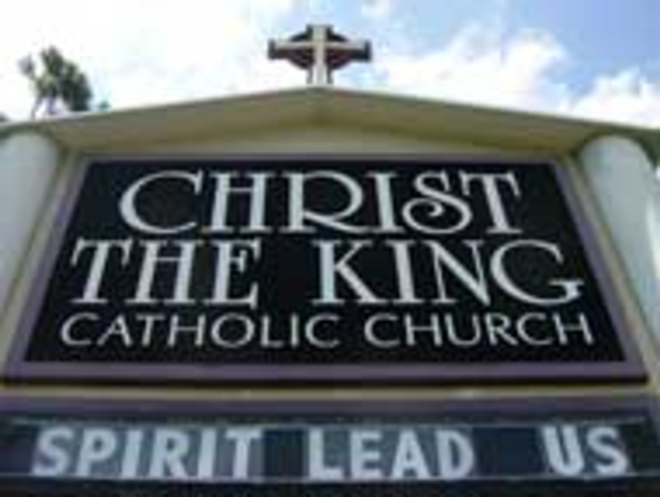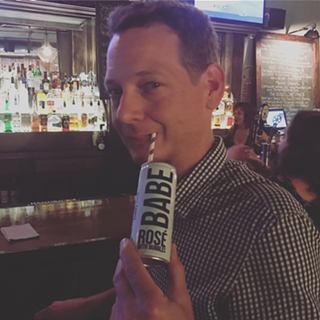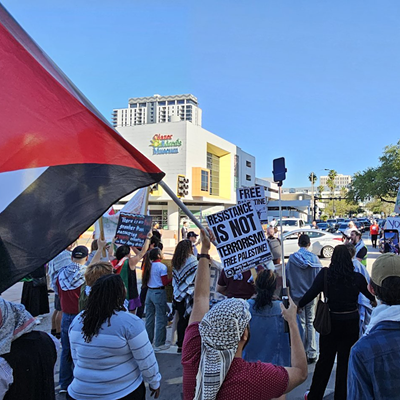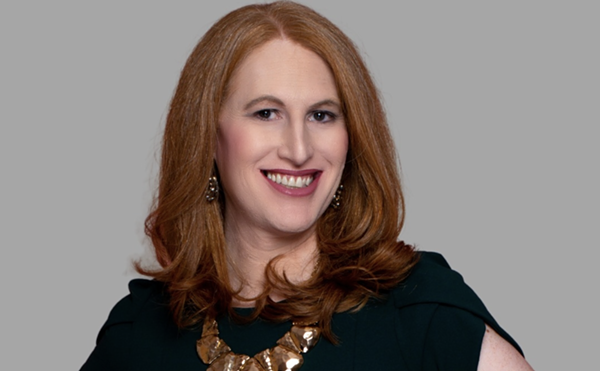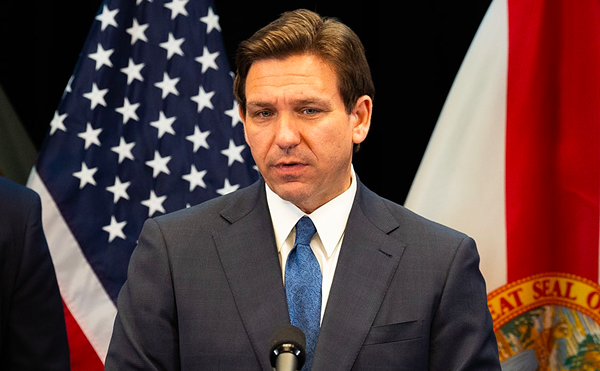During an April 13 "Day of Tolerance" at Wesley Chapel High School, several students wore, and handed out, T-shirts emblazoned with a Bible verse condemning homosexuality. A St. Petersburg Times article quotes one of the students' parents saying that "people of faith" endure more intolerance than any other group in America.
In a letter to the editor of her school's newspaper, a Plant High student asks why she's being "assaulted by religious involvement" at a public educational institution. Her letter mentions bulletin boards adorned with crosses and Bible quotations; individuals without visitor's badges distributing flyers; and pamphlets, ambiguously promoted during morning announcements, that turn out to be full of "inspirational" stories of conversion to Christianity.
In the Youth Center of South Tampa's Christ the King Catholic Church, the Center for Catholic-Jewish Studies holds an open discussion with the provocative title "Bullies for God - The Issue of Proselytizing."
The first two above incidents occurred last month. The third occurred last week. You don't need to be a genealogist to know they're all related.
Technically, "Bullies for God" was the final installment in a three-part series of forums commemorating the 40th anniversary of Vatican II, and the more open interfaith dialogue it fostered. Actually, "Bullies for God" centered on the verbal abuse and attempts at conversion suffered by Catholic and Jewish youth at the hands (mouths?) of fundamentalist Christian peers and parents.
An insurance seminar held in a below-code hotel owned by a pyromaniac would've contained less ironic potential.
Two teenage girls - one Catholic, one Jewish - stood up in front of 50 or so friends, family members and strangers, and told their respective tales of harassment. Afterward, a rabbi and a friar outlined some Christian sects' long histories of active recruitment, and warned that young members of other faiths are often targeted.
The operative vocabulary was the same sort used by a polite dinner-party guest who gets halfway through an anecdote before suddenly wondering if anybody in attendance might construe his perspective as racist; it was delivered with the same preemptory qualifiers ("Now, you know, we're not talking about all Christians here; I've never had a problem working with Methodists or Lutherans," or words to that effect) and tense, careful, word-searching pauses.
But, being the kind of meeting it was, nobody had to work too hard to divine what was meant by the repeated use of "them" and "they."
"Jews are not interested in making the whole world Jewish," said Rabbi Richard Birnholz, before positing that some Christians "have taken it upon themselves to speak for God."
Birnholz brought up the aforementioned student complaints about witnessing at Plant High. He also hit upon the popular theory, usually heard from secular humanists, that the desire of conservative Christians to bring prayer back to public schools is a camouflaged ongoing attempt to convert youngsters en masse.
Friar Michael Cooper was both more positive in his reflection of fundamentalist Christians, and less restrained in his distrust. He praised them for challenging Catholics and Jews to better understand their own faith, but claimed some denominations (one in particular that rhymes with "touthern paptist") were impossible to work with, suspecting that "there could be, and probably is, a hidden agenda to get at our young people."
During the final, open discussion/ask-the-panelists phase of the evening, a young man stood and began passionately holding forth about Judaism and Christianity having much more in common than the night's program let on; after several minutes, Rabbi Birnholz and one or two others curtly accused him of proselytizing, and shut him down.
A short time later, a woman asked the young man if he were a Messianic Jew - a Jew who believes Jesus Christ to be the Son of God and incorporates elements of evangelical Christianity into his or her worship (don't ask me, I can't figure it out either). After a bit of dithering, the man affirmed that he was, and the woman turned to Rabbi Birnholz and asked if shutting him down didn't constitute religious intolerance. I didn't write down Rabbi Birnholz's eloquently evasive response verbatim, but it was something to the effect that it didn't count, because Messianic Judaism is bullshit, and offensive to him as a Jew.
But between the young man's truncated witnessing and the woman's reaction to it, it was another woman who got out of her small, plastic fold-up chair and asked the crackerjack question of the evening. To wit:
If the problem is with fundamentalist and evangelical Christians, why wasn't a fundamentalist or evangelical Christian invited to speak and/or take questions?
"But they are here," said Christ the King's pastor, Friar Desmond Daly, indicating the crowd with an encouraging swoop of his open arms.
Nobody opted to stand up and be identified.
Friar Cooper, Rabbi Birnholz and Jim Barrens, executive director for the Center for Catholic-Jewish Studies, explained that, as this was a Center-sponsored event and part of a larger series, they thought it more appropriate to keep the planned presentation in-house, as it were, for the time being.
A few minutes and questions later, the group adjourned, armed with little more than additional confirmation that some folks really aren't cool with what some other folks believe.
Which is, of course, a revelation of time-stopping proportions.
Look, faith is a wonderful, fulfilling thing, be it Catholic, Jew or Christian fundamentalist, evangelical or otherwise. But the anxieties felt by the Catholics and Jews at the meeting seemed very genuine. They see active attempts to undermine their faith in a country - and particularly a region - where a majority religion is currently flexing its muscles in spectacular and frightening ways.
"The point is, in a public school setting, students should have an opportunity to get an education without having their faith questioned," said Rabbi Birnholz in a telephone interview a few days after "Bullies for God." "It's as simple as that."
Well, it is and it isn't. Religious friction is as old as civilization itself, and it's not about to end when Bush vacates the White House in '08.

